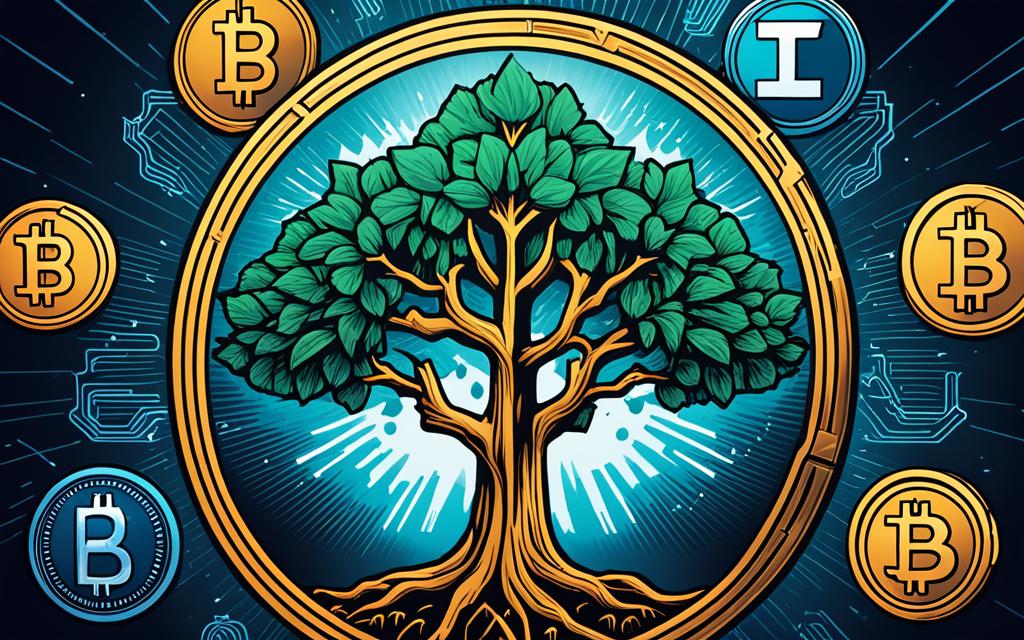Bitcoin has become a hot topic lately. It draws attention from investors, tech lovers, and people wanting financial freedom. Around 17,300 computers in almost 100 countries run this decentralized network. So, people wonder, can anyone actually stop Bitcoin?
Understanding why Bitcoin is safe from hacking is important. Its security comes from the decentralized system of the blockchain. This ledger of transactions gets checked over by people called miners. Thanks to cryptographic hash functions, altering transactions is nearly impossible.
Some worry about a 51% attack that could alter transaction history. Yet, such an attack is hard to achieve. It would require control over half of the network’s power. But Bitcoin’s widespread miner network makes this unlikely.
Bitcoin’s track record shows its toughness. Since 2009, no one has shut it down or made it useless. Some countries tried to ban cryptocurrencies like Bitcoin but didn’t succeed. Efforts in Algeria, Bangladesh, and even India show Bitcoin can outlast bans.
Bitcoin is hard for governments to stop because it has no central control. It’s different from usual money due to its decentralized nature. This makes Bitcoin a major shift in society, much like the printing press or the Internet once were.
In the USA, Bitcoin is seen as a commodity, not a security. This recognition helps Bitcoin’s standing in digital finance.
Despite government efforts worldwide, Bitcoin’s use continues to grow. China has tried to ban it, yet it remains a hub for mining. India’s Supreme Court overturned a ban in 2018. Efforts to ban it again are ongoing.
It’s hard for a government to ban Bitcoin entirely. They might target Bitcoin companies, but stopping the whole network is tougher. Bitcoin works globally, using the internet to complete transactions.
A worldwide ban is possible but hard to coordinate. It would involve disrupting major exchanges and the sharing of Bitcoin’s code.
Governments might not want to ban Bitcoin. Officials who support it, potential economic benefits, and the high cost of a ban make it likely to stay. Enforcing a ban would also be difficult.
As cryptocurrencies total over $1.5 trillion in value, it’s clear they’re important. Bitcoin is set to keep growing in the digital finance world.
To learn more about the government’s stance on Bitcoin and whether it can be banned, check out these informative articles:
- Can the Government Ban Bitcoin? Four Things You Need to Know
- The Brutal Truth About Bitcoin
- Can Bitcoin Be Banned?
Why Bitcoin is Considered “Hack-Proof”
Bitcoin is known for being hard to hack due to its decentralized blockchain network. This breakthrough changed how we view digital money. It offers a safe and open way to manage digital money.
At its core, Bitcoin’s safety comes from a cryptographic hash function. It creates a unique sign for every transaction block. This secures each block into the blockchain firmly.
Bitcoin works on a network shared by its users. Everyone has the blockchain’s full record. Users check each transaction against the network’s rules. This stops hackers from altering the blockchain.
New transactions form into blocks. Miners solve tough puzzles to add these blocks to the chain. This is called mining. It stops anyone from changing the blockchain after the fact.
Bitcoin’s setup makes it very secure against hacking. Its network quickly spots and stops any wrong changes. This is why people trust Bitcoin as hack-proof.
| Features | Benefits |
|---|---|
| Data Immutability | Once recorded, Bitcoin’s transactions can’t be changed, making them secure and permanent. |
| Decentralization | Its spread-out network structure avoids single points of failure, enhancing its resilience. |
| Transparency | Every transaction is public, building a climate of trust and responsibility. |
| Security | Cryptographic techniques and consensus methods protect and validate transactions. |
Can Bitcoin Be Shut Down or Banned?
Since its start, Bitcoin has shown incredible strength. It has ignored efforts to end or ban it. Governments worldwide have tried to close down the Bitcoin network without success. It has been up and running almost perfectly for a decade. Bitcoin’s design makes it hard for any single authority to shut it down.
Governments have thought about harsh actions. But, they have mostly tried to control the use of cryptocurrencies. These rules aim to protect investors and help with tax collection. They don’t want to ban Bitcoin. Bitcoin keeps getting more popular. This forces governments to figure out how to deal with it.
The power of Bitcoin’s mining network helps protect it from shutdowns. This network consists of miners from all over the world. An attack on Bitcoin, known as a 51% attack, is very unlikely. This is because it would require too much money and computing power. So, the network stays safe from attacks.
The Balance of Power
Bitcoin is trusted and seen as a valuable asset in the crypto market. It has faced competition but remains the top choice. Bitcoin gives its users freedom and security. This is something traditional financial systems can’t match.
Bitcoin’s journey to this point wasn’t easy. It faced many hurdles and controversies. But thanks to its design and community support, it keeps growing. It’s becoming harder to stop Bitcoin’s progress. The future might see more government rules, but banning Bitcoin isn’t likely to happen.
| Bitcoin Shutdown | Bitcoin Ban | Government Regulation of Bitcoin |
|---|---|---|
| Unsuccessful | Unrealized | In progress |
| Bitcoin’s decentralized nature makes it difficult to shut down. | Government focus on regulating rather than banning. | Efforts to regulate Bitcoin are ongoing. |
| The network has maintained almost 100% uptime for nearly ten years. | Protection of investors and taxation are prioritized. | Governments seek to adapt to the rise of cryptocurrencies. |
| 51% attack is highly improbable. |
In conclusion, Bitcoin won’t be easily shut down or banned due to its design. It’s too popular and has a strong network. Governments are more likely to make rules for it, not ban it. Bitcoin’s good reputation and value make it a strong player in the market.
Conclusion
Governments worldwide keep a close eye on how Bitcoin affects their financial setups. They worry about Bitcoin because it works on its own, without central control. This worry is also because Bitcoin has been linked to illegal actions.
Yet, the path Bitcoin will take depends on how governments react and set clear rules. Bitcoin is popular but hasn’t threatened government control yet. So, its big challenge is still to come.
Governments need to strike a balance between making rules and encouraging new ideas. By welcoming Bitcoin’s benefits, like better financial systems and easier global payments, we can create a world that includes everyone more.
What will happen with Bitcoin is still up in the air. But, it could majorly change our financial world. Governments need to be ready and understand Bitcoin to manage how it affects their power and the worldwide economy.
FAQ
Can Bitcoin be stopped?
No, Bitcoin hasn’t been shut down yet. Even though some governments tried to ban it, Bitcoin’s design prevents this. Its decentralized approach makes it tough to stop. A massive global power outage or a major bug in an update could potentially impact it.
Why is Bitcoin considered “hack-proof”?
Bitcoin is seen as secure due to its blockchain technology. This technology is checked by miners all the time. They use something called a cryptographic hash function to keep each transaction safe. This setup makes changing or faking transactions very hard.
Can Bitcoin be shut down or banned?
Bitcoin remains undefeated by shutdowns or bans. Governments have tried to limit its use. But Bitcoin’s design makes it hard for any single country to fully block it. Instead, it’s more likely that countries will put rules in place to keep investors safe and tax transactions.
What is the future of digital finance?
Digital finance’s future relies on how well governments adapt to new currencies like Bitcoin. It also depends on clear rules being set. Bitcoin could help improve how money systems work worldwide. But governments must balance rules with allowing innovation to flourish.



















